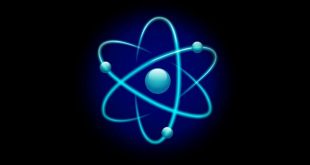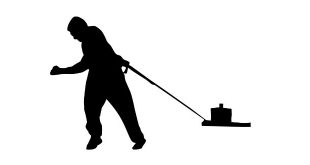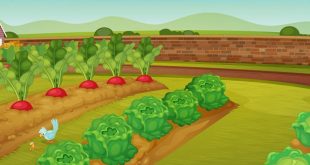Question: What is an election? State its relative mass and charge. Answer: The negatively charged particle found in the atoms of all elements is known as electron. The relative mass of an election is 1/1840 u & charge is – 1 (minus one). Question: What is the absolute mass & …
Read More »NCERT 9th Class (CBSE) Science: Sound
Sound – 9th Class NCERT CBSE Science Chapter 12 Question: Can sound travel through: Carbon Water Answer: yes yes Question: Can sound travel through vacuum? Answer: No, sound cannot travel through vacuum. Question: Name the type of waves which are used by astronauts to communicate with one another on moon (or in …
Read More »9th Class (CBSE) Science: Atoms and Molecules
Question: Define law of conservation of mass. Answer: In a chemical reaction mass can neither be created nor destroyed. E.g., 2Na + Cl2 —–> 2NaCl 2 x 23 + 2 x 35.5 ——> 2(23 + 35.5) Question: Explain law of constant proportion. Answer: In a chemical substance the elements are always …
Read More »NCERT 9th Class (CBSE) Science: Energy and Work
Question: Does work done depend upon the velocity of the body. Answer: No. Question: State the law of conservation of energy. Answer: It states that energy can neither be created nor destroyed. It can only change its form. Question: In a tug-of-war one team gives way to the other. What …
Read More »NCERT 9th Class (CBSE) Social Science: Clothing: A Social History
Question: What does the change in styles of clothing linked with? Answer: Changes in styles of clothing are thus linked up with shifts in cultural tastes and notions of beauty, with changes within the economy and society, and with issues of social and political conflict. Question: What were Sumptuary Laws? …
Read More »NCERT 9th Class (CBSE) Social Science: Democratic Rights
Question: Define Fundamental Rights. Answer: The Fundamental Rights are those basic conditions which are considered essential for the overall development of a person. These are guaranteed under the Constitution. Question: ‘Some rights need to be placed higher than the government’. Give reason. Answer: Thought it is the duty of each democratic government …
Read More »NCERT 9th Class (CBSE) Social Science: Constitutional Design
Question: Here are some false statements. Identify the mistake in each case and rewrite these correctly based on what you have read in this chapter. 1. Leaders of the freedom movement had an open mind about whether the country should be democratic or not after independence. 2. Members of the …
Read More »NCERT 9th Class (CBSE) Social Science: Peasants and Farmers
Question: Who was Captain Swing? Answer: It was a mythic name used by the poor laborers to threaten the rich landlords who were replacing workers for machines. Question: What was common land? Answer: It was the land to which all villagers had an access. Question: “For the poor, the common land was …
Read More »NCERT 9th Class (CBSE) Social Science: Population
Question: Name the organisation which provide us with information regarding the population of our country. Answer: The Census of India. Question: State the position of India in terms of population size. Answer: Second. Question: State the total population of India according to the 2011 census. Answer: Around 1210.2 million. Question: …
Read More »NCERT 9th Class (CBSE) Social Science: Democracy in the Contemporary World
Question: What is veto power? Answer: The power or right vested in one branch of a government to cancel or postpone the decisions, enactments, etc., of another branch, especially the right of a president, governor, or other chief executive to reject bills passed by the legislature. The exercise of this right. …
Read More » Class Notes NCERT Solutions for CBSE Students
Class Notes NCERT Solutions for CBSE Students






